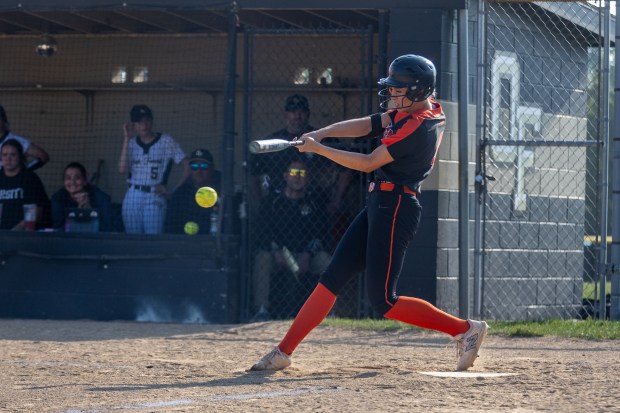Will County Judge John Anderson said Friday he would allow University Park to intervene in a 2019 lawsuit state officials filed against its water provider, Aqua Illinois.
Anderson said he would also deny a motion to enter the consent order agreed to in October by Aqua Illinois, the Illinois attorney general’s office and the Will County state’s attorney’s office.
Village attorney Burt Odelson said University Park officials are pleased with the judge’s decision.
“This is a very big victory for the village residents. They’ll now have a voice in this action,” Odelson said. “We greatly desire to work with the attorney general to bring further relief to the village residents.”
In a statement, Aqua Illinois President Dave Carter said while Anderson stated he will deny the entry of the consent order, he hasn’t yet issued an order explaining his reasoning. Carter said he wouldn’t comment on the judge’s decision until his order is filed.
“Regardless of the court’s decision, the fact remains that water provided to University Park customers has met all state and federal benchmarks for nearly three years — a fact Aqua believes is well-supported by filings in the case by the Illinois Attorney General’s Office, Illinois EPA and Will County State’s Attorney’s Office,” Carter said in the statement.
Attorney General Kwame Raoul and State’s Attorney James Glasgow filed the 2019 lawsuit accusing Aqua of failing to provide safe drinking water, failing to comply with monitoring and sampling requirements, violating construction and operating permit requirements and creating a public nuisance.
Aqua began using the Kankakee River as its water source and adding a blend phosphate mix to the public water system to improve taste, according to the lawsuit. The change, the lawsuit alleges, is believed to have caused a chemical reaction that removed a protective layer in residential plumbing.
Raoul and Glasgow asked a judge to approve the consent order in October after finding Aqua met the state lead action level over several six-month compliance sampling periods and developed an effective corrosion control treatment for the public water system.
Odelson said the village hired him in May, and the following month he got a call from the state’s attorney’s office that officials wanted the mayor to testify. But when the consent order was filed in October, the village wanted to intervene because it did not go far enough, he said.
The consent order would establish a technical assistance program in which residents’ tap water will be tested for lead. If the result of the water is above 15 ppb for lead, the resident would be eligible to receive a free filter device and an inspection of the visible plumbing.
The technical assistance program would continue for one year from the entry of the consent order, and Aqua would send out information to residents about how to register, according to the order.
Under the program, Aqua would fund an escrow account with up to $300,000 for the remediation of lead solder and any fixtures containing fixtures found in kitchen faucets. Aqua would also pay an additional $200,000 in civil penalties.
In an amended motion to intervene, filed in November, the village requested the funding in the technical assistance program to increase to $2.4 million and to continue the program for two years.
akukulka@chicagotribune.com





